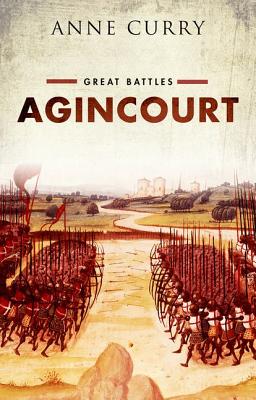Agincourt (1415) is an exceptionally famous battle, one that has generated a huge and enduring cultural legacy in the six hundred years since it was fought. Everybody thinks they know what the battle was about. Even John Lennon, aged 12, wrote a poem and drew a picture headed 'Agincourt'.
But why and how has Agincourt come to mean so much to so many? Why do so many people claim their ancestors served at the battle? Is the Agincourt of popular image the
real Agincourt or is our idea of the battle simply taken from Shakespeare's famous depiction of it? Written by the world's leading expert on the battle, this book shows just why it has occupied such a key place in English identity and history in the six centuries since it was fought, exploring a cultural legacy that stretches from bowmen to Beatles, via Shakespeare, Dickens, and the First World War.
Anne Curry first sets the scene, illuminating how and why the battle was fought, as well as its significance in the wider history of the Hundred Years War. She then takes the Agincourt story through the centuries from 1415 to 2015, from the immediate, and sometimes surprising, responses to it on both sides of the Channel, through its reinvention by Shakespeare in
King Henry V (1599), and the enduring influence of both the play and the film versions of it, especially the patriotic Laurence Olivier version of 1944, at the time of the D-Day landings in Normandy.
But the legacy of Agincourt does not begin and end with Shakespeare's play: from the eighteenth century onwards, on both sides of the Channel and in both the English and French speaking worlds the battle was used as an explanation of national identity, giving rise to jingoistic works in print and music. It was at this time that it became fashionable for the gentry to identify themselves with the victory, and in the Victorian period the Agincourt archer came to be emphasized as the epitome of 'English freedom'. Indeed, even today, historians continue to "refight" the battle - an academic contest that has intensified over recent years, in the run-up to this sixth hundredth anniversary year.






